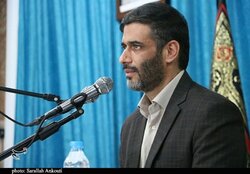
'Free Zones High Council looking for establishment of international bourse in FTZs'

Although, Saeed Mohammad mentioned the problems existing in these zones and said, “Our free zones have a lot of problems, the first of which is infrastructure. After 39 years, Kish Free Zone still does not have enough electricity supply; we have 22,000 vacant units in Kish, and if they live in them, we will face a big electrical problem.”
Just two percent of the country’s export is from the free zones, they account for only one percent of the country’s production, and seven percent of investment, the official further lamented.
The establishment of free trade zones in Iran dates back to the Iranian calendar year 1368 (March 1989- March 1990) following the fall in the country’s oil income in the preceding year which prompted the government to promote the non-oil exports.
The first two free trade zones of Iran were established in the south of the country. The first one was Kish Free Trade Zone established in 1368 on Kish Island in the Persian Gulf and the second one was Qeshm Free Trade Zone established the year after on Qeshm Island in the Strait of Hormuz.
Some five other free trade zones have been also established in the country since then, including Chabahar in southeastern Sistan-Baluchestan Province, Arvand in southwestern Khuzestan Province,
Anzali in northern Gilan Province, Aras in East-Azarbaijan Province, and Maku in West-Azarbaijan Province, both in the northwest of the country.
While near three decades have passed since the start of free trade zones activity in Iran, their planned objectives have not been fully achieved and their development is still facing some impediments.
Lack of proportion between the facilities and the objectives, lack of a national definition for free trade zones’ performance, limited resources for establishment and completion of infrastructures, no comprehensive management between the zones, and not complete implementation of zones management law are some of the barriers in the way of free trade zones’ activity and development in the country.
Source: Tehran Times


Trump weighs using $2 billion in CHIPS Act funding for critical minerals

Codelco cuts 2025 copper forecast after El Teniente mine collapse

Electra converts debt, launches $30M raise to jumpstart stalled cobalt refinery

Barrick’s Reko Diq in line for $410M ADB backing

Abcourt readies Sleeping Giant mill to pour first gold since 2014

Nevada army depot to serve as base for first US strategic minerals stockpile

SQM boosts lithium supply plans as prices flick higher

Viridis unveils 200Mt initial reserve for Brazil rare earth project

Tailings could meet much of US critical mineral demand – study

Kyrgyzstan kicks off underground gold mining at Kumtor

Kyrgyzstan kicks off underground gold mining at Kumtor

KoBold Metals granted lithium exploration rights in Congo

Freeport Indonesia to wrap up Gresik plant repairs by early September

Energy Fuels soars on Vulcan Elements partnership

Northern Dynasty sticks to proposal in battle to lift Pebble mine veto

Giustra-backed mining firm teams up with informal miners in Colombia

Critical Metals signs agreement to supply rare earth to US government-funded facility

China extends rare earth controls to imported material

Galan Lithium proceeds with $13M financing for Argentina project

Kyrgyzstan kicks off underground gold mining at Kumtor

Freeport Indonesia to wrap up Gresik plant repairs by early September

Energy Fuels soars on Vulcan Elements partnership

Northern Dynasty sticks to proposal in battle to lift Pebble mine veto

Giustra-backed mining firm teams up with informal miners in Colombia

Critical Metals signs agreement to supply rare earth to US government-funded facility

China extends rare earth controls to imported material

Galan Lithium proceeds with $13M financing for Argentina project

Silver price touches $39 as market weighs rate cut outlook

















